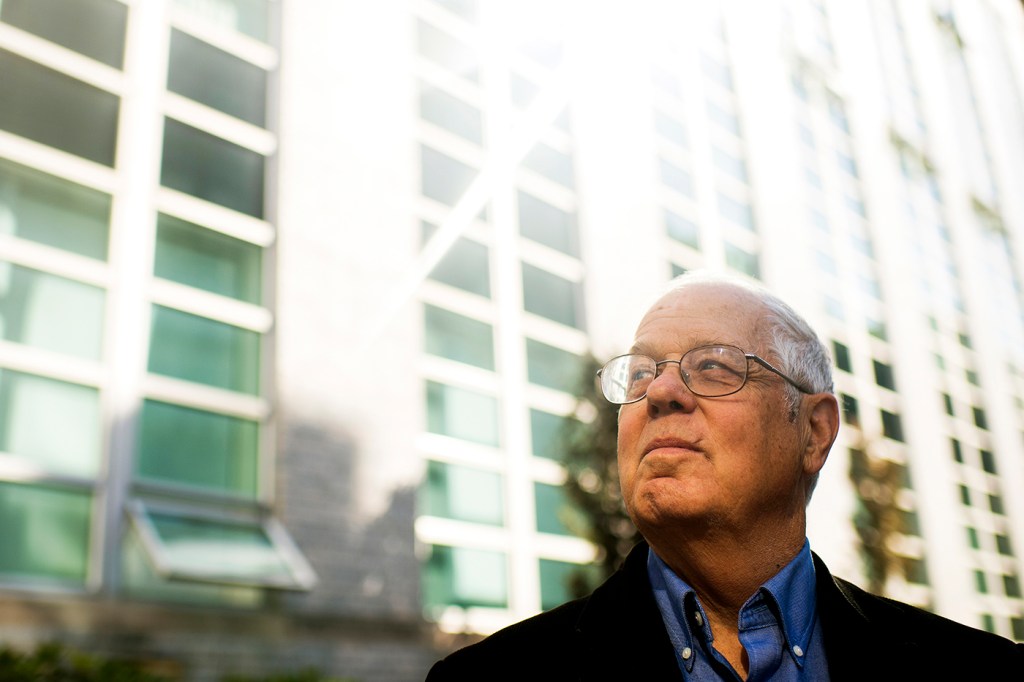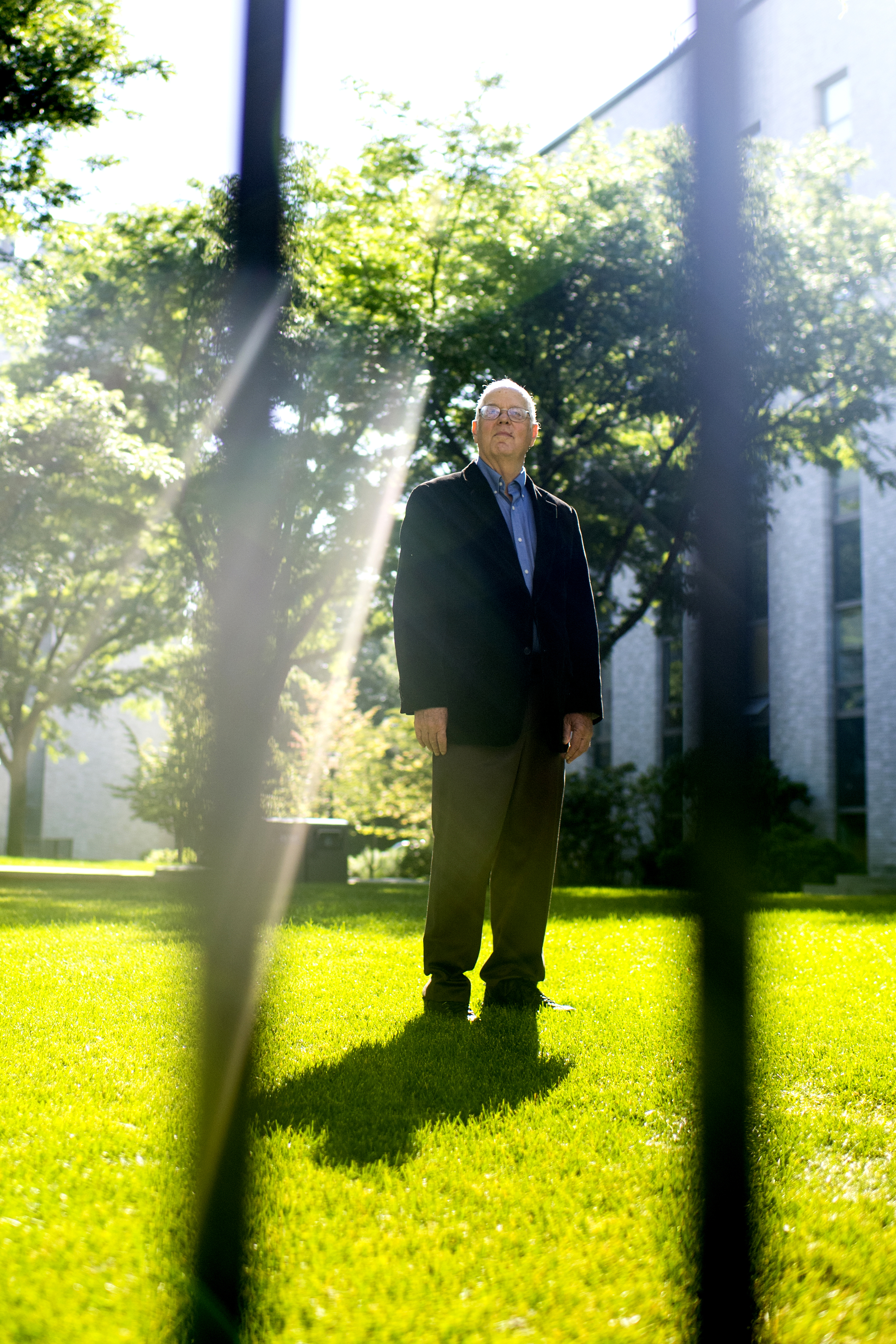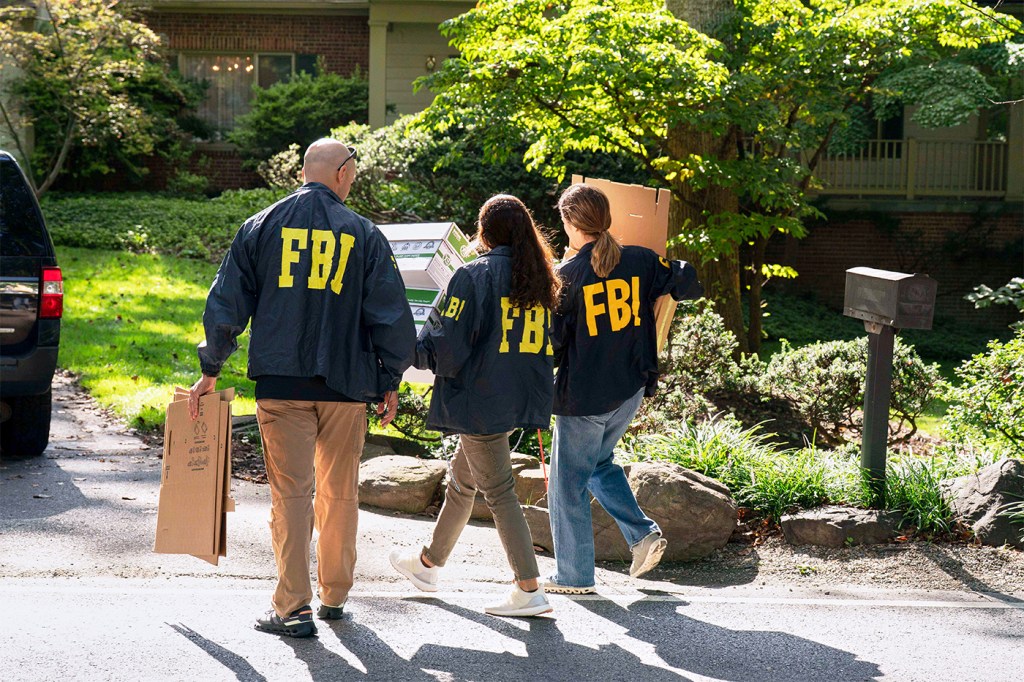When tenants and landlords are locked in a dispute, they call this Northeastern professor to mediate

Ed Wertheim is a professional mediator.
For the past 12 years, Wertheim—an associate professor of management and organizational development in the D’Amore-McKim School of Business—has volunteered to mediate court cases in Massachusetts, primarily at Quincy District Court.
He usually handles disputes between landlords and tenants. Most involve rent payments, but sometimes the issue is bad behavior or tenants who have roommates who are not on the lease.
The stakes can be high for each side. On one hand, you might have a landlord who has sunk every penny into a triple-decker he’s renting. On the other, a tenant could be facing a rough personal situation.
“You’re dealing with a roof over someone’s head,” Wertheim said.

Photo by Matthew Modoono/Northeastern University
Wertheim said he wouldn’t describe himself as a “naturally gifted negotiator,” but through training and experience he’s acquired the techniques and mindset to be an effective one. It can be a challenging and stressful job. But he said as a longtime professor—he joined Northeastern’s faculty in 1977—who has taught conflict resolution and mediation courses for decades, he’s found great fulfillment in providing his expertise outside the classroom.
Wertheim estimated that he’s mediated—either solo or with a co-mediator—about 200 cases. He signs up to volunteer through MWI, a Boston-based company that facilitates mediation services. When he arrives at court in the morning he doesn’t know what cases are coming his way; he waits for the judge to call upon him when needed.
If a case requires mediation, he and the two parties meet in a private room and talk. He said that he delicately poses pointed, probing questions to uncover the underlying interests in the case, but typically lets the two sides do most of the talking. “I try to get at the real issues,” Wertheim said.
Being a good listener, he said, is essential to successful mediation. Just as important is finding common ground and determining how far each side is willing to budge to reach a resolution. “Do you have any room on that?” is a common question in his repertoire, he said. A typical mediation case might last 90 minutes, but sometimes they’ll go for several hours.
“Some people say they want the money, but they just really want an apology,” he said.





